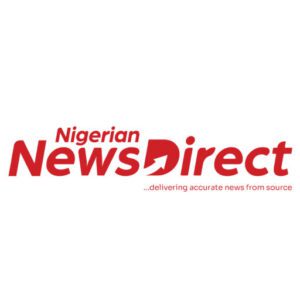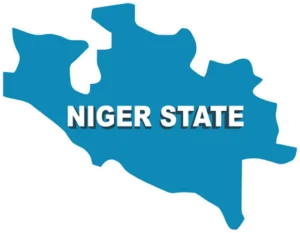Expectation of Nigerians about incoming government
Nigeria is still far from the expectations of its citizens. This has made several individuals and groups to call the attention of the would-be Nigerian leaders to what they expect of them by the time they receive the baton of leadership, come May 29. One such group is Nigerian Supreme Council for Islamic Affairs (NSCIA) which released a five-point demand to the next president of Nigeria over the weekend.
The organisation, as led by its President-General, the Sultan of Sokoto, HRM Alhaji Sa’ad Abubakar stated that after alternating military and civilian administrations for several decades, Nigeria is still far from the expectations of its citizens and the global black community. In the light of this, it has become imperative to convey to presidential candidates and the electorate in the coming general elections the citizens’concerns and expectations in a way to avoid past mistakes. The NSCIA mentioned that for almost one and a half decades, Nigeria has been traumatised by an unprecedented level of carnage with losses of thousands of lives while millions are displaced as well as harbouring a booming kidnappingbusiness. The body went further to say that the growing and seemingly unending insecurity had crippled agriculture, commerce and education with consequential adversities.
“The incoming president is expected to make this his top priority and to deploy the highest political will and resources to bring this menace to a quickend. Some of the key lessons to note here include the dismantling of theeconomic war, from which a few officials are feeding fat and the integrity of commanders,” NSCIA said.
According to the body, there has been an absence of synergy between the different security services and the building of local trust for effective intelligence. Besides, it enjoined the incoming government to curb the proliferation of small arms and light weapons, maintaining that all was not well with the economy.
NSCIA therefore urged the incoming government to address the grinding poverty, joblessness and severe inequities across the populace.
“The statistics are frightening, as they suggest that nearly 2/3 of the Nigerian population live below the poverty line. Given the structure of our economy, the greatest sector and one with the capacity to expand and absorb the most in agriculture.
“We, therefore, expect the incoming government to give it a priority. Here it is important to emphasise the need to make a paradigm shift from production to processing because that is how value chains are fixed, jobs provided and prosperity created,” it noted.
Speaking on infrastructure, it stated that over the last quarter of a century,Nigeria’s infrastructure has continued to decay and has affected the economy.
“One particular critical sector is the power sector. From 1999 to date, we have compromised our power sector reform, not because of the dearth of ideas but because of the absence of political will and the inordinate greed of government officials. We expect the incoming president and his governmentto end this anomaly. There are experts with knowledge of the sector, who have what it takes to bring back sufficient electricity to power our industries.
“We expect the incoming government to identify them and work diligently to restore power to this country which has groped in the dark for too long. We also need to have a sustainable energy plan that will unleash our natural resources while protecting the environment.
“Other critical areas of infrastructure include improving roads and rail, recharging the Lake Chad waters to boost agriculture, arresting desertification and boosting digital literacy,” it stated.
Another area that was touched is the need to grow Nigeria’s human capital,stressing that this is critical to economic recovery and the future of the country.
In global competitiveness, the group maintained that this area remains Nigeria’s comparative advantage as 65 per cent of the population is under 35 years of age.
“At the moment, the records show that we have the largest out-of-school children in the world. Our girl-child enrolment presents another worrying statistics, with implications for our development. If we can educate this population and give them basic health care, they alone can be a powerful momentum in our economy. We expect the incoming government to come up with a plan to educate and skill these nearly 20 million out-of-school children.
“We also expect the incoming government to come up with a plan to fund education and to re-invent our public universities so that they can rise to international standards and meet the manpower needs of our industries at home.”
It reminded that government exists to protect lives and property and provide for the welfare of citizens, the organisation emphasised that the first parameter of evaluation of government is service delivery. To NSCIA, service delivery capacity of the governments of Nigeria at all levels has been calamitous.
“We need an incoming government that will pay immediate and serious attention to these all-important issues. In modern governance, this is usually done by developing what is called ‘Key Performance Indicators’ (KPI) for every ministry and government establishment.
“This is evaluated periodically against pre-determined and established deliverables. One of the greatest challenges to delivering KPIs and government performance is of course corruption.
“Our country has featured on the wrong side of the corruption index and we must make a firm resolve to fight corruption. We want an incoming president who will demonstrate his political will from the quality of people he will appoint and the zero-tolerance he will show for corruption,” it opined.
NSCIA again stressed the importance of inclusion in governance. It noted that it was important for the incoming President to develop a framework for inclusion which should be both scientific and accountable.
“This will promote trust and national cohesion as well as allow the country to focus on the great task of development.”
In the same vein, in one of the Nigeria Public Finance Reviews: “Fiscal Adjustment for Better and Sustainable Results” held in Abuja on November 21, 2022, some basic solutions were proffered to the nation’s economic “woes,” which the incoming government is expected to harness.
“Nigeria needs to increase its spending from its current very low levels, to promote economic development.
“The key to raising public spending lies in urgently raising more revenue. At 7 per cent of GDP in 2021, Nigeria’s revenue to GDP ratio is among the five lowest in the world.
“Putting Nigeria on a sustainable fiscal path with improved service delivery requires a multi-pronged approach anchored around three interlinked and mutually reinforcing pillars.
To promote economic development, Nigeria needs to increase its spending from its current very low levels. Despite its vast development needs, Nigeria spends only $220 per Nigerian per year, and at merely 12 per cent of GDP, this is one of the lowest levels of spending in the world.
Low public spending translates into poor development outcomes. The country is among the eight economies with the lowest human capital in the world, ranked 167th out of 174 countries on the World Bank’s Human Capital Index. As a result, a child born in Nigeria today will only be 36 per cent as productive when he grows up as he could be, if he had access to effective education and health services.
Not only is spending low, but social sectors receive very little, less than a quarter of the national budget allocation. Compared with similar countries, Nigeria’s spending on social sectors: education, health, and social protection is very low.
Infrastructure needs continual growth as public investment allocations are residual, receiving whatever resources are left over after other priorities have been met. Whether it is a school or a road, the federal government or State Governments can invest only when they have the funds to do so. With 60 per cent of the low levels of overall spending being absorbed by public sector salaries and pensions, and growing interest payments, fiscal space for implementing projects, especially multi-year projects, remains highly constrained.
At the present level of public investment allocations, and even before considering mounting climate change adaptation costs, it may take Nigeria 300 years to provide the minimum infrastructure that the country needs. Poor outcomes are not only a result of a low level of spending, but also inefficient spending. Nigeria continues to finance regressive and inefficient petrol, electricity, and exchange rate subsidies. Government’s net oil revenues could be 52 per cent higher if it’s not subsidising petrol, a product that is largely consumed by wealthier households, the poorest 40 per cent of the population only consume 3per cent.
Similarly, while electricity subsidies have been reduced, thanks to the government’s recent reform efforts, they still represent almost 9 per cent of the federal government’s non-oil revenues.
Finally, implicit exchange rate subsidies are a consequence of the multiple exchange rate windows managed by the Central Bank of Nigeria (CBN), with the federal government subsidising the Central Bank through the differences between the official and IEFX windows rates.
At the end of the day, all these untargeted and distortive subsidies incur large costs and take away resources from spending on social services and infrastructure. All these unnecessary spending must be looked into by the incoming government.
The key to raising public spending lies in urgently raising more revenue. At 7 per cent of GDP in 2021, Nigeria’s revenue to GDP ratio is among the five lowest in the world. To boost revenues, the government has initiated important revenueenhancing reforms over the last two years. A few of these measures include increasing the VAT rates (from 5 to 7.5 per cent in 2020), starting the process of limiting tax expenditures in certain sectors (2021), operationalising the Electronic
Money Transfer Levy, and introducing excise taxes on certain “sin” goods (2022). Despite these reforms, actual revenues collected are still far below their potential. In fact, Nigeria’s non-oil revenue potential is estimated to be twice the current collection rate. The key challenges that continue to undermine Nigeria’s ability to raise more revenues are low tax rates, tax administration inefficiencies, high tax expenditures, low tax morale, and an opaque and complex governance of the oil sector. All these require better management, that the citizens are believing the incoming government for.
In summary, Nigerians eagerly expect the incoming government to put Nigeria on a sustainable fiscal path with improved service delivery, which will require a multi-pronged approach anchored around three interlinked and mutually reinforcing pillars. First, there is an urgent need to significantly increase the level of fiscal revenues, to fund the public spending needed to deliver critical public services.
Second, it would be important to allocate spending more efficiently, which includes phasing out the fuel, electricity, and exchange rate subsidies, to make room for human and physical capital investments.
And lastly, it would be critical to strengthen fiscal management institutions. Adopting these pathways is a choice that Nigeria needs to make. These reforms require policy consistency, a will to shift away from the present “business-as-usual” approach, and a political consensus among elites. These reforms are critical in strengthening the foundations of Nigeria’s public finances and building trust between the citizens and the state.
Our hope cannot afford to be dashed this time around, as the electorate has to be wise in choosing its leaders.




